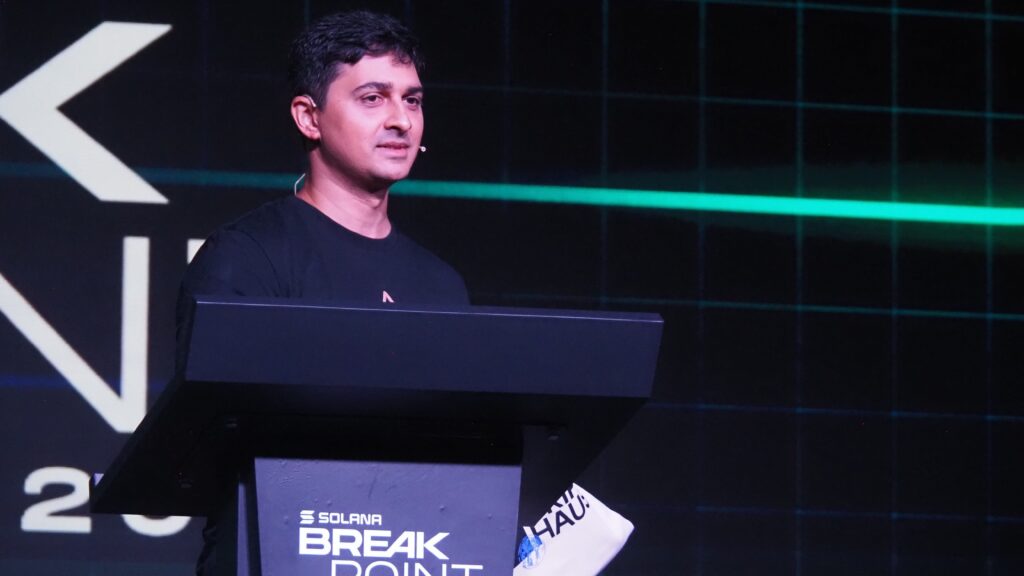From a Noisy Lab Desk to Groundbreaking AI Innovations
In 2015, a young AI researcher named Ben Fielding embarked on his PhD journey at Northumbria University in northern England. A wooden cubicle housed his workspace, but it was dominated by a clunky machine filled with early GPUs, blaring noise that often irritated his lab-mates. Fielding, determined to push the boundaries of AI, squeezed the oversized machine beneath his desk, awkwardly shifting his legs to the side to accommodate it.
Innovative Ideas Amidst Constraints
Fielding’s ideas were anything but conventional. He began exploring the concept of “swarms” of AI, where clusters of diverse models could communicate and learn from one another, potentially enhancing their collective intelligence. However, he faced a significant hurdle: the limitations imposed by his noisy machine. He recognized that he was competing against tech giants like Google, who boasted thousands of GPUs in their data centers, leaving him feeling outmatched. “I had lots of proposals, but I couldn’t run them,” he recalls.
Realizing that computational constraints would continue to be a challenge, Fielding understood that as AI transitioned to mainstream applications, these limitations would only become more pronounced.
A Vision for Decentralized AI
In response to these challenges, Fielding co-founded Gensyn in 2020, well before the concept of decentralized AI gained traction. Initially known for its decentralized computing capabilities, Gensyn’s vision has expanded to encompass “the network for machine intelligence.” The company is dedicated to developing solutions across the entire technology stack.
Fast forward to today, Gensyn’s early tools are now operational. They recently launched the “RL Swarms” protocol, a direct descendant of Fielding’s PhD research, alongside the Testnet that integrates blockchain technology into their framework.
Insights from the AI Summit at Consensus 2025
In an engaging conversation leading up to the AI Summit at Consensus 2025 in Toronto, Fielding shared his insights on AI Swarms, the role of blockchain, and the importance of democratizing access to machine learning technologies for all innovators, not just tech giants.
Understanding the Testnet Launch
When asked about the recent Testnet launch, Fielding described it as the initial integration of blockchain features with their existing systems. “It’s the addition of the first MVP features of blockchain integration with what we’ve launched so far,” he explained.
The Power of RL Swarms
Prior to blockchain integration, Gensyn introduced the RL Swarm, a peer-to-peer network for reinforcement learning that enables pre-trained models to engage in self-critique and improvement. This collaborative training process allows multiple models to communicate and enhance each other’s learning, creating a more robust collective intelligence.
Fielding elaborated, “If you join a swarm for an hour and then leave, your local model improves based on the knowledge shared within the swarm, while also contributing to the improvement of other models.”
Integrating Blockchain for Enhanced Trust
As Gensyn moves forward, blockchain technology plays a crucial role in establishing trust among devices. Fielding explained that the blockchain enables persistent identity, payments, and consensus, allowing models to communicate securely. The Testnet serves as a foundation for integrating these blockchain components, facilitating trust and reliability within the swarm.
Future Prospects of Gensyn
Looking ahead, Fielding envisions a future where all machine learning resources are programmatically accessible to everyone. He believes that by building the right software infrastructure, barriers created by centralized AI companies can be dismantled. “People should have the right to build machine learning technologies,” he asserts, emphasizing the need for open-source solutions.
Conclusion: A Decentralized Future for Machine Intelligence
Ben Fielding’s journey from a noisy lab desk to leading innovations in decentralized AI embodies the spirit of perseverance and creativity. With Gensyn at the forefront of this transformation, the possibilities for collaborative, decentralized machine intelligence are limitless, paving the way for a more inclusive technological landscape.



